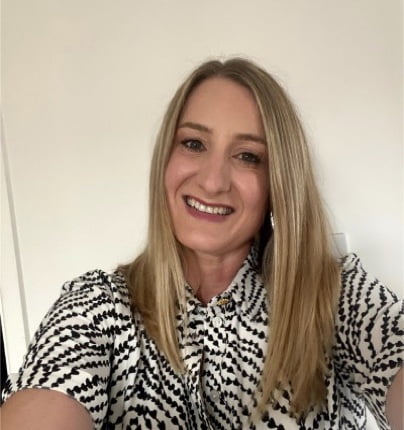Insights from TariffTel Experts at Customs Compliance in the UK Conference 2024: Harnessing Technology, Navigating Regulations, and Ensuring Trade Compliance
Mrs. Elizabeth Davies, Customs Systems Manager, and Mr. Tim Ingram-Smith, Head of Infrastructure and Technology, represent TariffTel, innovative customs compliance solutions. In an interview conducted at the Customs Compliance in the UK Conference, 2024, they provided valuable insights into TariffTel’s approach to addressing challenges in customs compliance and navigating the landscape of international trade regulations. From streamlining classification processes to preparing for future trends, TariffTel’s proactive strategies underscore their commitment to enhancing efficiency and ensuring compliance for businesses trading internationally.
Nielsonsmith: Can you provide insights into the specific challenges that customs specialists face in integrating technology into their compliance processes?
Tim: The most significant challenge we have encountered revolves around managing data effectively. Data is often dispersed, of varying quality, frequently incomplete, and sourced from different areas. Bringing together this disparate data represents the primary challenge for customs specialists. While there is an expectation that implementing a system will solve all issues, in reality, it merely highlights the need for better process organisation and addressing data challenges.
Nielsonsmith: What are the primary challenges TariffTel faces in maintaining and developing customs systems, especially in the ever-evolving landscape of international trade regulations?
Liz: Well, it’s crucial that we stay up-to-date with the evolving regulations, as discussed during today’s event [Customs Compliance in the UK Conference, 2024]. Topics like deforestation, chemical regulations, and the collection of information on products for battery recycling are significant areas of focus. Attending these events is vital for us to remain informed. Additionally, we must keep track of upcoming tariff code changes and promptly inform our customers about any revisions. This proactive approach ensures that TariffTel stays ahead of regulatory changes and maintains current knowledge of the latest information.

TariffTel provides the highest standard in customs classification offering a unique approach that provides unbeatable efficiency, cost-savings and compliance standards.
Nielsonsmith: Could you elaborate on the role of technology in ensuring seamless integration between customs systems and other stakeholders in the supply chain?
Tim: Technology plays a diverse role in facilitating integration within customs processes and across supply chain stakeholders. While traditional tools like Excel spreadsheets and manual documentation are still prevalent, technological advancements over the past few decades have led to the development of more sophisticated systems. These systems often feature web-based interfaces that enable seamless data exchange between organisations and government entities. Many stakeholders are now investing in custom-built APIs tailored to their specific needs, further enhancing integration capabilities.
Effective integration hinges on adhering to emerging standards and leveraging technologies that support file uploads and data sharing. By implementing systems that facilitate these functionalities, stakeholders can streamline their operations and enhance collaboration throughout the supply chain.
Nielsonsmith: How does TariffTel ensure accuracy and efficiency in tariff code classification, especially for complex products across different industries?
Liz: At TariffTel, we have a team of classification experts who employ a comprehensive approach. We don’t solely rely on the tariff book; rather, we gather information from various sources including chapter notes, explanatory notes, webinars, WCO publications, BTI’s, and cross rulings. Our process involves conducting thorough examinations of products, translating complex information into easily understandable language, and creating unique item types for selection. This simplifies the classification process for users who can search for products using everyday language such as “blouse,” “jumper,” or “pair of trousers.” We then request specific information relevant to the product classification, ensuring a tailored approach. By guiding users through this process, our system generates accurate and up-to-date tariff codes.
Nielsonsmith: What are some key considerations that customs specialists should keep in mind when evaluating and implementing technology solutions for customs compliance?
Tim: When assessing different technologies, customs specialists typically prioritise cost-effectiveness and ease of implementation within their organisations. However, it’s crucial to delve into the specifics of the system. Questions such as “Does this solution offer a clear process?” and “Will it be auditable?” are crucial. Customs operations often require justification for chosen paths, especially when challenged by regulatory authorities. Therefore, ensuring that the technology supports the established processes and facilitates audibility is essential.
Moreover, integration with existing systems is imperative. Standalone solutions are inadequate since customs operations involve interactions with various organisational components. Integration should accommodate exchanges with programs handling purchase orders, invoices, customer declarations, and other relevant data. Thus, the underlying technology must possess interoperability capabilities to ensure smooth communication between systems.
Nielsonsmith: Could you discuss some examples of how TariffTel’s systems have transformed operations and improved compliance for businesses trading internationally?
Liz: We recently onboarded a new client in 2022, an e-commerce clothing business that aimed to establish a distribution centre in America to reduce lead times. They faced the challenge of classifying around 20,000 products within a short timeframe. TariffTel proved instrumental in this process. The client utilised TariffTel by sending their purchase orders to the platform, which then distributed the information to all their vendors. The vendors inputted the product data into the system, which facilitated classification. This streamlined approach ensured compliance and minimised issues with U.S. customs. As a result, the client successfully expanded their market share in the U.S., demonstrating the effectiveness of TariffTel’s systems in transforming operations and enhancing international trade compliance.

Nielsonsmith: What distinguishes TariffTel’s approach to customs classification from other solutions available in the market?
Liz: Our research in the marketplace indicates that many solutions rely heavily on AI, often with some human interpretation involved. Typically, these solutions use the tariff book and its API for classification. However, we’ve found that such systems often struggle with terms like “cropped blouse,” as they may not directly match words in the tariff book. In contrast, our system is designed to understand product-specific language that users are likely to search for, such as “crop top” or “crop blouse.” This product-centric approach ensures greater accuracy in classification.
Moreover, we collect data directly from the source – either vendors or factories – ensuring that master data is accurate and comprehensive from the outset. By gathering this information early in the production process, we mitigate the risk of missing or incomplete data later on. This proactive approach enhances efficiency and minimises compliance issues associated with inadequate product information.
Nielsonsmith: Could you share some best practices for businesses looking to streamline their customs compliance processes?
Tim: The best practice for any business, regardless of whether the topic includes customs, involves evaluating it from a business case perspective. Businesses should assess whether a particular solution reduces costs, enhances operational efficiency, and aligns with customer expectations. When evaluating customs software, such as TariffTel provides. Businesses should consider its ability to reduce costs, improve supply chain visibility, and meet specific requirements. It’s essential to ensure that the software or service provider can understand and implement specific business needs effectively.
In the customs space, businesses deal with tariffs, duties, and the associated costs of cross-border shipping. Therefore, it’s crucial to select a system that ensures accurate data management and facilitates presenting information to authorities in a justifiable manner. This proactive approach helps businesses streamline their customs compliance processes.
Nielsonsmith: In your opinion, what will be the most significant trends shaping the future of customs compliance, and how is TariffTel preparing to address them?
Liz: We’re observing an increasing frequency of audits conducted by HMRC, with a growing emphasis on centralised, auditable systems. TariffTel is well-positioned to meet this demand as our platform serves as a centralised repository for all relevant data. Our product facilitates communication between suppliers and customers, ensuring that every aspect of the product, including inquiries, tariff codes, change histories, binding tariff information, and decision-making processes, is recorded and easily accessible. We are also cognisant of emerging concepts such as the digital product passport, and TariffTel already incorporates similar functionalities, providing comprehensive information and full traceability for each product. Through these capabilities, TariffTel is prepared to adapt to and address the evolving landscape of customs compliance effectively.

Mr. Tim Ingram-Smith
Head of Infrastructure and Technology, TariffTel
Tim Ingram-Smith is the Head of Infrastructure and Technology at TariffTel. He has IT leadership experience developing software-as-a-service systems for sectors including supply chain, property management, marketing production and mergers & acquisitions. With a technical background in computer science and product development, Tim focuses very much on the customer experience, bringing resources and expertise to bear to transform and enhance systems and operations.

Ms. Elizabeth Davies
Customs Systems Manager, TariffTel
Elizabeth Davies is the Customs Systems Manager at TariffTel and leads the team of classification experts. She is responsible for maintaining and developing TariffTel and supporting our customers with the system. She has been with TariffTel for 3 years and has leadership experience in Supply Chain, Logistics and Customs Classification. She has worked across different industries including Retail, Transportation, Automotive and Aerospace. She has completed Level 5: Diploma in Advanced Customs Compliance.
